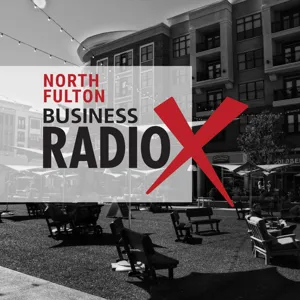Your Political Strategy (or Lack Thereof) Could Make or Break Your Business

As we enter an emotionally charged election filled with uncertainty, Emory University's Goizueta Business School professor Suhas Sridharan joins to discuss corporate political strategy. Learn from the transformative and tumultuous journeys of global giants like Uber and Facebook – and find out how navigating policy making and the regulatory landscape just may make or break your business.
Business and politics. Two huge institutions that are inseparably intertwined. As we enter an emotionally charged election year, businesses and individuals are speculating how political outcomes will impact their lives and the success of their organizations.
Suhas Sridharan joins to discuss how you can navigate political systems to achieve the mission of your organization, actions you can take to influence policy making and political outcomes, and how the regulatory landscape can make or break your business. We’ll also delve into the role that activists, interest groups and corporate social responsibility play in shaping your success.
Suhas is an associate professor in Accounting at Emory University’s Goizueta Business School. Prior to this, she earned her PhD in business administration from Stanford University's Graduate School of Business. Her expertise has been featured in leading publications including the Wall Street Journal, Bloomberg, and Financial Times.
Identifying Pivotal Politicians
Suhas discusses strategies for identifying politicians pivotal to a company's mission, highlighting the use of data-driven tools to measure political ideologies. She offers the resource voteview.com as a starting point for exploration. When it comes to influencing these politicians, she discusses the merits of differing strategies, including reaching out to politicians that run counter to your strategies and convincing them to become allies versus connecting with politicians already aligned with your cause and encouraging them to use their networks and influence to support your objectives, the latter of which is known as sequential lobbying. Melanie and Suhas also delve into additional actions businesses can take to influence politicians and political outcomes. They discuss campaign finance, the role of PACs, and the misconception surrounding corporate contributions to political campaigns, where owners, employees, and families may contribute to these funds, but not corporations themselves.
The Revolving Door Strategy
As Suhas elaborates on the value of board appointments, she emphasizes the benefits to corporations of hiring individuals with political experience to navigate regulatory environments, also known as the revolving door strategy. She touches on the power of industry-level cooperation and coalitions, such as trade associations, in influencing policy.
Expansion and Challenges of Uber
Melanie and Suhas reflect on Uber's approach to navigating regulatory challenges and the timing of business actions in relation to political landscapes. Suhas begins by examining Uber's journey from a luxury black car service to the more ubiquitous UberX. She highlights the challenges Uber faced, particularly from entrenched taxi industries, and the importance of navigating regulatory landscapes in different markets.
Corporate Political Strategy
The conversation shifts towards corporate political strategy, emphasizing the need for businesses to assess issues comprehensively, identify pivotal policymakers, and build coalitions effectively. Suhas stresses the adaptability of such strategies across local and global markets, underscoring the significance of understanding local cultures and contexts.
Facebook's Experience in India
Using Facebook's experience in India as a case study, Suhas explores the complexities of expanding into emerging markets. She discusses Facebook's initiative, internet.org, aimed at providing internet access to one of the world’s largest markets, but facing backlash due to concerns over net neutrality and a lack of cultural awareness and understanding.
Activists and Interest Groups
Suhas underscores the pivotal role of activists and interest groups in shaping policy agendas and influencing corporate decisions. She illustrates this with historical examples, such as Ralph Nader's impact on automobile safety regulations, and contemporary instances, such as boycotts affecting companies like Kyte Baby.
Corporate Social Responsibility (CSR)
The conversation extends to CSR as a strategic imperative for businesses. Suhas explains how CSR initiatives, often driven by market demands, serve as a form of self-regulation, enabling companies to mitigate regulatory risks and enhance reputation. Suhas provides actionable insights for business leaders seeking to develop effective political strategies. She emphasizes the importance of issue identification, leveraging resources like media, lobbyists, and trade associations, and actively engaging with stakeholders to navigate complex political landscapes.
For more insights and success stories that equip you with the tools and perspectives to excel in your career, subscribe to the Goizueta Effect podcast.



